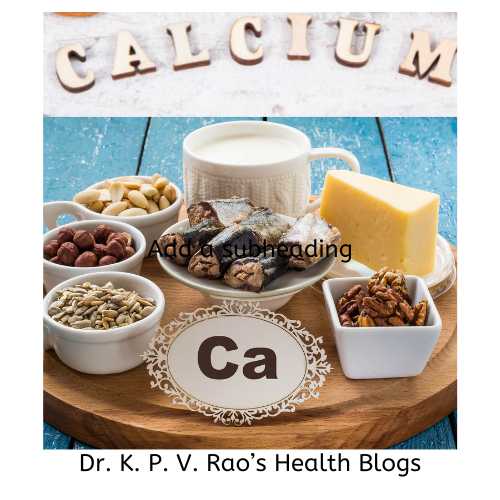
Table of Contents
Introduction
In the quest for a healthy body, we often focus on exercise and a balanced diet, but there’s another crucial element that shouldn’t be overlooked: essential minerals.
These natural wonders play a vital role in our overall well-being, supporting various bodily functions and providing numerous metabolism benefits.
From calcium to magnesium, zinc to iron, these minerals are the unsung heroes that keep our bodies functioning optimally.
In this article we will learn about six of the many essential minerals that play an important role in every day metabolic functions of our body.
Listen to this article
Calcium, for example, not only aids in building strong bones and teeth but also plays a key role in muscle function and nerve transmission. In the recent past, I have written on how to get calcium from the food we eat. You can read it here, if you have already not done so-
Magnesium is involved in over 300 biochemical reactions in the body, helping to regulate blood pressure, support healthy immune function, and maintain a steady heart rhythm.
Moreover, essential minerals also contribute to a healthy metabolism. They are involved in important metabolic processes that help convert food into energy. For instance, zinc is necessary for proper digestion and metabolism, while chromium aids in the regulation of blood sugar levels.
Without a proper intake of these minerals, our bodies can suffer from deficiencies that can lead to a wide range of health issues.
By understanding the functions and metabolism benefits of essential minerals, we can make informed choices about our diet and ensure we’re fueling our bodies with the nutrients they need. So, grab your notepads and prepare to dive into the fascinating world of essential minerals as we explore their importance and the impact they have on our physical well-being. Let’s unlock the secrets to a healthier, more vibrant you.
Kindly Note:
As this article is quite exhaustive, I have split it into 2 parts. In Part 1 we will discuss what these essential minerals are in general and in part 2, we will learn how to gain access to them and use them to lead a healthy life.
The Importance of Essential Minerals for the Body
Essential minerals are vital for maintaining overall health and well-being. They are called “essential” because our bodies require them for proper functioning but cannot produce them on their own. These minerals are necessary for various bodily processes, including the formation of bones and teeth, the functioning of muscles and nerves, and the regulation of metabolism.
One of the most well-known essential minerals is calcium. Calcium is primarily associated with bone health, but its importance extends beyond that. It plays a crucial role in muscle contraction, nerve transmission, and blood clotting. Without sufficient calcium intake, our bodies may experience muscle cramps, weakened bones, and an increased risk of osteoporosis.

Another essential mineral that shouldn’t be overlooked is magnesium. Magnesium is involved in more than 300 biochemical reactions in the body. It helps regulate blood pressure, supports healthy immune function, and maintains a steady heart rhythm.

Magnesium deficiency can lead to muscle weakness, fatigue, and an increased risk of cardiovascular issues.
Zinc is another essential mineral that plays a critical role in metabolism and overall health. It is necessary for proper digestion and metabolism, as well as immune function and wound healing. Zinc deficiency can result in a weakened immune system, delayed wound healing, and impaired growth and development.
These are just a few examples of essential minerals and their importance for the body. Each mineral has its own unique functions and benefits, and it’s essential to ensure an adequate intake of all these minerals to maintain optimal health.
Common Essential Minerals and Their Functions
There are several essential minerals that our bodies require for proper functioning. Let’s explore some of the most common minerals and their functions:
- Calcium: As mentioned earlier, calcium is essential for bone and teeth health. It also plays a crucial role in muscle function, nerve transmission, and blood clotting. Additionally, calcium is involved in hormone secretion and cell signaling.
- Magnesium: Magnesium is involved in hundreds of biochemical reactions in the body. It helps regulate blood pressure, supports a healthy immune system, and maintains a steady heart rhythm. Magnesium is also important for energy production, DNA synthesis, and protein synthesis
- Iron: Iron is necessary for the production of hemoglobin, a protein in red blood cells that carries oxygen throughout the body. It is involved in energy metabolism and supports brain function. Iron deficiency can lead to fatigue, weakness, and anemia.
- Zinc: Zinc is essential for proper growth and development, immune function, and wound healing. It is involved in DNA synthesis, protein synthesis, and cell division. Zinc also plays a role in taste perception and supports reproductive health.
- Chromium: Chromium is involved in the metabolism of carbohydrates, fats, and proteins. It helps regulate blood sugar levels and supports insulin function. Chromium deficiency can result in insulin resistance and an increased risk of type 2 diabetes.
- Iodine: Iodine is an essential mineral that our body needs to produce thyroid hormones. These hormones regulate our metabolism, heart health, and brain development. Iodine also helps maintain cognitive function in childhood, treats and prevents fibrocystic breasts, and disinfects skin wounds. It is also crucial for pregnant women to consume enough iodine for proper fetal brain growth.
These are just a few examples of essential minerals and their functions in the body. Each mineral has its own unique role, and a deficiency in any of these minerals can have adverse effects on our health.
Understanding Mineral Metabolism
Mineral metabolism refers to the processes by which our bodies absorb, utilize, and excrete minerals. It involves the absorption of minerals from the diet, their distribution throughout the body, and their elimination through urine and feces.
The absorption of minerals primarily occurs in the small intestine. It is influenced by various factors, including the presence of other nutrients, the body’s need for minerals, and the body’s ability to transport and absorb minerals. For example, vitamin D plays a crucial role in calcium absorption, while phytates and oxalates can inhibit the absorption of certain minerals.
Once absorbed, minerals are transported through the bloodstream to various tissues and organs in the body. They are then used for their specific functions and incorporated into various molecules and compounds. Any excess minerals that are not needed by the body are excreted through urine and feces.
It’s important to note that mineral metabolism can be influenced by various factors, including age, gender, overall health, and the presence of certain medical conditions. For example, certain medications can affect mineral absorption, while kidney disease can impair the body’s ability to excrete minerals.
Benefits of Essential Minerals for Overall Health
Essential minerals provide numerous benefits for overall health and well-being. Here are some of the key benefits of these minerals:
- Bone Health: Minerals like calcium, phosphorus, and magnesium are essential for maintaining strong and healthy bones. They help build bone density, prevent bone loss, and reduce the risk of osteoporosis and fractures.
- Muscle Function: Minerals like calcium, magnesium, and potassium play a crucial role in muscle contraction and relaxation. They help maintain proper muscle function, prevent muscle cramps, and support physical performance.
- Energy Metabolism: Essential minerals are involved in important metabolic processes that help convert food into energy. For example, magnesium is necessary for ATP production, the energy currency of our cells. Iron is involved in the production of red blood cells, which carry oxygen to our muscles and organs.
- Immune Function: Minerals like zinc, selenium, and copper are essential for a healthy immune system. They support the production of immune cells, help regulate immune responses, and protect against infections and diseases.
- Heart Health: Several minerals, including calcium, magnesium, and potassium, play a crucial role in maintaining a healthy heart. They help regulate heart rhythm, support blood pressure regulation, and reduce the risk of cardiovascular disease
- Thyroid health: Iodine helps the production of thyroid hormones. Deficiency leads to hypothyroidism. In combination with wound treating antiseptic like povidone, it helps healing of wounds.
These are just a few examples of the benefits that essential minerals provide for overall health. Incorporating a variety of mineral-rich foods into our diet can help ensure we’re reaping these benefits and maintaining optimal health.
Suggested reading:
- National Institutes of Health – Office of Dietary Supplements. (2021). Dietary Supplements: What You Need to Know.
- Harvard T.H. Chan School of Public Health. (2021). Minerals.
- Merck’s Manual
Final words
I hope you have gained good knowledge regarding a few essential minerals and how they help our metabolism.
In my next article, I will carry on with tips on how to access these minerals through foods and supplements.
You can help others by sharing this article on social media by sending it through the icons at the bottom of this article. Alternately, you can Click to Tweet here-
Exploring the Functions and Metabolism Benefits of Essential Minerals-Part 1 Share on XTo be concluded….




